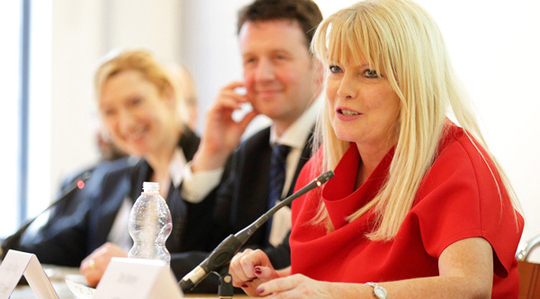A NEW report launched on the Southside recently has revealed how 75-80 per cent of all blindness is preventable.
Five people go blind every week in Ireland, yet most of the conditions that cause sight problems are easily treated, the Economic Cost and Burden of Eye Diseases and Preventable Blindness in Ireland report states.
There are more than 220,000 people in Ireland who are currently blind or vision impaired and this figure is expected to grow substantially due to Ireland’s ageing population.
The report into economic impact of eye diseases in Ireland indicates that up to e76 million could be saved annually if earlier intervention is prioritised.
The aim of the report – which is part of a pan-European study of 16 countries by Deloitte – is to analyse the impact and burden of blindness and the most prevalent eye diseases in Ireland, and to evaluate the cost-effectiveness of interventions to prevent eye disease and blindness.
There are currently 292,867 individuals in Ireland with one of the four eye diseases researched – cataract, diabetic retinopathy, glaucoma or wet-age related macular degeneration.
All of these eye diseases can lead to blindness.
The report also found that blindness and vision impairment cost the Irish state e205 million in 2010 yet up to e76 million could potentially be saved if a series of cost-effective measures for the four main eye diseases in Ireland were implemented.
The National Vision Coalition, a group representing the interests of the vision impaired and blind community, called for the immediate implementation of a national vision strategy.
Speaking at the launch of the report, Des Kenny, the Chief Executive Officer of NCBI and joint chairperson of the National Vision Coalition said:
“We, as a country need to avoid preventable blindness in the future and this report shows how cost-effective these intervention measures can be.
“We also need to assist those living with vision loss or impairment as best as possible by ensuring that suitable services are available and accessible.
“But we need to do more, and my hope is that we will be able to prevent blindness entirely in Ireland by implementing the recommendations of the National Vision Coalition.
?
Avril Daly, the Chief Executive Officer of Fighting Blindness and joint Chairperson of the National Vision Coalition, added:
“It is crucial that we develop a cohesive plan for vision health and support those affected by sight loss in Ireland.
“It is imperative that service users have access to appropriate treatment and care.
?
Deputy Mary Mitchell-O’Connor, who addressed the conference, pointed out that the human impact of blindness was hugely significant.
“Blind people often say that they feel invisible within society,
? she said.
“I support the call for the implementation of a national vision strategy to address blindness and vision impairment and help reduce its human, societal and economic impact.
